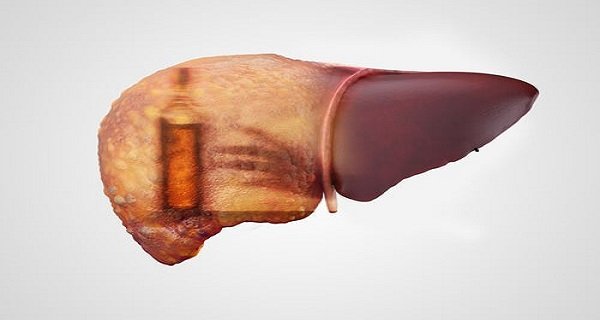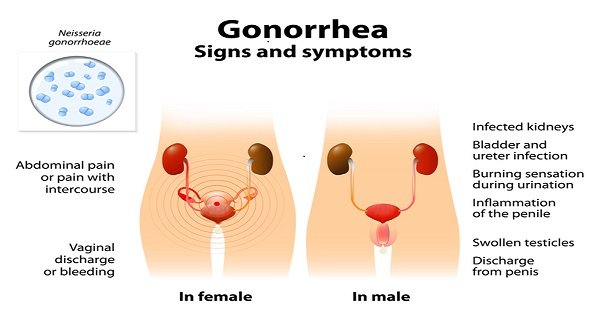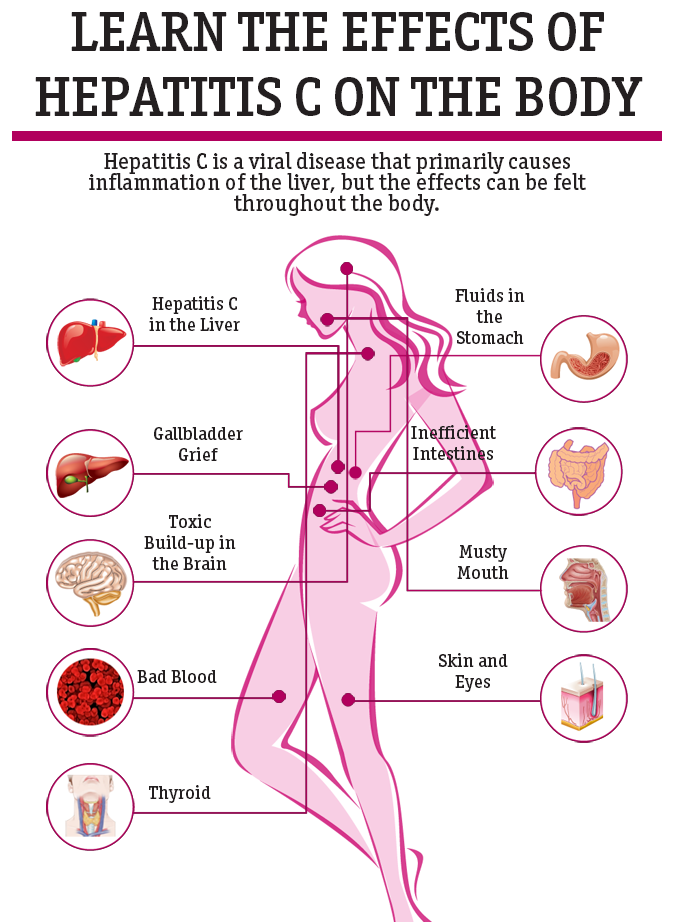What Does High/low Viral Load Mean
Viral load is the amount of virus present in the bloodstream. It is expressed as the amount of viral genetic material per milliliter of blood. The amount of virus does not predict how severe the liver disease is or will become. The level of the viral load does not tell us anything about the risk of liver damage or how sick someone is. In hepatitis C, it matters if virus is present or absent. Some treatment regimens can be shortened if the patient has a low viral load to start with, but most often, treatment regimens are the same for people with high hepatitis C viral loads or low viral loads.
The RNA test is essential for making the diagnosis of hepatitis C infection–having a positive RNA test is the definition of having infection. After the diagnosis is made, the RNA level does not need to be checked over and over unless it is checked during the time that the patient is undergoing treatment. During treatment, regular RNA tests are done to follow the dropping virus level until it reaches an undetectable state. But before treatment and after treatment, repeated RNA testing is not necessary.
Treatments For Hepatitis C
Hepatitis C can be treated with medicines that stop the virus multiplying inside the body. These usually need to be taken for several weeks.
Until recently, most people would have taken 2 main medicines called pegylated interferon and ribavirin .
Tablet-only treatments are now available.
These new hepatitis C medicines have been found to make treatment more effective, are easier to tolerate, and have shorter treatment courses.
They include sofosbuvir and daclatasvir.
Using the latest medications, more than 90% of people with hepatitis C may be cured.
But it’s important to be aware that you will not be immune to the infection and should take steps to reduce your risk of becoming infected again.
But Even If You’ve Been Cured It Can Have Lifelong Health Implications
“Hepatitis C is a lot more than just a liver disease,” Reau says. “It has been associated with many medical conditions, such as an increased risk of developing diabetes, kidney disease and cancer.”
While curing hepatitis C significantly reduces the risk of serious complications, like liver failure, liver cancer and the need for transplantation, it doesn’t completely eliminate the health risks associated with the disease.
“Hep C is linked to scarring of the liver or cirrhosis and the more scar tissue that develops, the greater the likelihood of complications,” Reau says. “If there is a lot of scarring, you will need lifelong monitoring.”
Reau also recommends leading a healthy lifestyle to help prevent re-infection and further liver damage: Limit alcohol consumption, control your weight, avoid high-risk activities and manage diabetes if you have it.
Don’t Miss: How Long Can Someone Live With Hepatitis B
How Long Before I Have Symptoms
ishonestNo.211 – Repair Elasticity Damage
Many people have mild symptoms or no symptoms, which is why hepatitis is sometimes called a âsilentâ disease.
Hepatitis A. The symptoms usually show up 2 to 6 weeks after the virus enters your body. They usually last for less than 2 months, though sometimes you can be sick for as long as 6 months.
Some warning signs that you may have hepatitis A are:
Hepatitis B. The symptoms are the same as hepatitis A, and you usually get them 3 months after you’re infected. They could show up, though, anywhere from 6 weeks to 6 months later.
Sometimes the symptoms are mild and last just a few weeks. For some people, the hep B virus stays in the body and leads to long-term liver problems.
ishonestNo.215 – Repair Elasticity Damage
Hepatitis C. The early symptoms are the same as hepatitis A and B, and they usually happen 6 to 7 weeks after the virus gets in your body. But you could notice them anywhere from 2 weeks to 6 months later.
For about 25% of people who get hep C, the virus goes away on its own without treatment. In other cases, it sticks around for years. When that happens, your liver might get damaged.
Remember, it’s possible to spread all the types of hepatitis even if you don’t show any signs of being sick.
Hepatitis B In The United States

In the United States, about 862,000 people have chronic hepatitis B.6 Asian Americans and African Americans have higher rates of chronic hepatitis B than other U.S. racial and ethnic groups.10 Researchers estimate that about half of the people living with chronic hepatitis B in the United States are Asian Americans and Pacific Islanders.11 Chronic hepatitis B is also more common among people born in other countries than among those born in the United States.7
The hepatitis B vaccine has been available since the 1980s and, in 1991, doctors began recommending that children in the United States receive the hepatitis B vaccine. The annual rate of acute hepatitis B infections went down 88.5 percent between 1982 and 2015.12 In 2017, the annual number of hepatitis B infections rose in some states.13 Experts think the rise was related to increases in injection drug use. Injection drug use increases the risk of hepatitis B infection.
Don’t Miss: How Much Is A Hepatitis C Test
Reduce Your Chance Of Infection
You can reduce your chance of hepatitis B infection by
- not sharing drug needles or other drug materials
- wearing gloves if you have to touch another persons blood or open sores
- making sure your tattoo artist or body piercer uses sterile tools
- not sharing personal items, such as toothbrushes, razors, or nail clippers
- using a latex or polyurethane condom during sex
What Are The Symptoms And How Does Hepatitis C Progress
Many people with hepatitis C feel entirely well and have few or no symptoms. Any symptoms that may be present are often initially thought to be due to another illness. This may mean that hepatitis C may be diagnosed when you have had the virus for some time. Many people have hepatitis C without knowing it.
It is helpful to think of two phases of infection with HCV. An acute phase when you first become infected and a chronic phase in people where the virus remains long-term.
Recommended Reading: Hepatitis B And C Can Be Spread By
Awareness Prevention And Early Diagnosis Are Essential
There’s a good reason why hepatitis C is known as a “silent killer.”
According to the U.S. Centers for Disease Control and Prevention, an estimated 3.2 million Americans live with chronic hepatitis C infection, which is transmitted through infected bodily fluids like blood and semen, and causes inflammation of the liver. Yet up to 75% of people who have hepatitis C aren’t aware they have it.
Most of those living with the virus experience only mild symptoms or don’t have any symptoms at all until they develop serious liver damage or another life-threatening liver disease. Unfortunately, that means they aren’t getting diagnosed and treatment is delayed until the later stages when irreversible liver damage has occurred.
Here, hepatologistNancy Reau, MD, associate director of the Solid Organ Transplant Program at Rush University Medical Center, explains who is at risk for hepatitis C and offers advice to help you protect yourself.
Questions For Your Doctor
When you visit the doctor, you may want to ask questions to get the information you need to manage your hepatitis C. If you can, have a family member or friend take notes. You might ask:
Also Check: What Form Of Hepatitis Is Sexually Transmitted
Our Areas Of Innovation For Hepatitis
Liver biopsies provide a great deal of information about the extent of damage in a childs liver, but the procedure is invasive and can be both painful and risky. Researchers at Boston Childrens use an ultrasound-based imaging technology called FibroScan that may be able to help doctors assess liver scarring without a liver biopsy.
The commitment and compassion with which we care for all children and families is matched only by the pioneering spirit of discovery and innovation that drives us to think differently, to find answers, and to build a better tomorrow for children everywhere.
If You Have Hepatitis C Can You Have Sex Without Infecting Your Partner
Hepatitis C is a virus that is transmitted by blood. The most common ways people become infected with hepatitis C are through needle sharing, such as during injection drug use, or from blood transfusions received before 1992.
Becoming infected from sex is not common, but it does happen. If you have hepatitis C, the chance of infecting a sex partner is higher if you are with a new partner or if you have had many different partners over time. If you have hepatitis C, the chance of infecting a sex partner is lower if you are with a longtime stable partner and if you are in a monogamous relationship.
If your sex partner is new to you, or if you have many different partners, it is safer if you use condoms during sex to reduce the chance of transmitting hepatitis C.
It is always best to talk directly with your health care provider to assess whether you should start using condoms. If you are in a sexual relationship and either you or your partner has hepatitis C, the other partner should be tested for hepatitis C and other sexually transmitted viruses once a year, or as advised by your provider.
Read Also: Hepatitis C Symptoms In Females
Your Blood Sugar Is High
If you have hep C, youre also at risk for type 2 diabetes. That’s because HCV triggers an inflammatory response that interferes with your body’s ability to use insulin correctlywhat doctors call metabolic signaling. This results in insulin resistance, causing glucose to build up in the blood and leading to type 2 diabetes.The important thing to know, if you have any of these symptoms, is that there is a cure for hep C. Though best if treated early, late is better than never, so head to your doctor, stat!
What Are The Tests For Hepatitis C

There are two blood tests needed to diagnose hepatitis C:
The antibody test–called HCV antibody, HCV Ab, or anti-HCV–is done first. If this test is positive, it means that you have been infected with hepatitis C at some point in the past. If your antibody test is negative, then you have never been infected with hepatitis C if you were infected within the past month or so, the test may not be accurate you may needed to be retested at a later date.
However, a positive antibody test does not tell you if you still have hepatitis C. For that, you need to have a HCV RNA test, which determines whether the virus itself is in the bloodstream.
If any RNA is present in the blood after 6 months from time of infection, then you have chronic hepatitis C.
If no RNA is detected in the blood after 6 months, you no longer have hepatitis C.
You May Like: Hepatitis C Ab W Refl To Hcv Rna Qn Pcr
What Are Treatment Options For Hepatitis C
While no one wants to get diagnosed with a blood infection, hep C is 98% curable when you take the recommended course of treatment. Unlike the weekly interferon injections of the past, which delivered side effects as harsh as chemotherapy, treatment has come a long way in the past few years.
Thanks to a class of meds called direct-acting antivirals , most people with hep C can be completely cured of the disease in just a matter of weeks . DAAs are taken in daily tablet form and while some patients experience mild side effects, they can usually be managed with OTC meds.
DAAs target and eliminate proteins found in the hep C virus the two most common medications prescribed are Mavyret and Epclusa , both of which include a cocktail of different types of antiviral drugs in one pill.
In rare cases , DAAs dont work to clear the virus. When this happens, doctors will most often prescribe a more aggressive antiviral medication such as Vosevi. Because Vosevi is a potent combination of three antiviral drugs , it has a slightly higher burden of side effects, including:
-
Headache
-
Diarrhea
-
Nausea
If youre put on DAAs, your doctor might also prescribe a longer course of treatment to clear the infection and will know for sure if the virus is gone by measuring how much viral genetic material is in your blood.
Curative Therapies For Hepatitis C
Current therapy to cure hepatitis C relies on oral antiviral medications taken for 8 to 16 weeks. Injection therapy is no longer used. The duration of therapy and the suitable regimen may depend on disease severity and viral genotype. Recent advancements in hepatitis C therapies have boosted cure rates to greater than 95% for nearly all individuals. Remarkably, tolerability has also improved dramatically, typically with only mild side effects if any at all. The following is an overview of most commonly used therapies in Canada.
Also Check: Autoimmune Hepatitis Primary Biliary Cholangitis
Can I Drink Alcohol Once In A While If I Have Hepatitis C
Alcohol can clearly contribute to worsening liver disease. You must discuss with your health care provider if any amount of alcohol is safe for you.
Alcohol can cause inflammation and scarring in the liver. If you have any underlying liver condition, such as hepatitis C or hepatitis B or damage from long-term alcohol use, your liver will be more sensitive to alcohol. When you have hepatitis C virus, alcohol on top of the hepatitis C can cause the inflammation and scarring to be worse, and overall damage to the liver may happen much faster when you drink alcohol.
Here is some helpful information about alcohol and hepatitis:
Symptoms Of Hepatitis C
Hepatitis C often doesn’t have any noticeable symptoms until the liver has been significantly damaged. This means many people have the infection without realising it.
When symptoms do occur, they can be mistaken for another condition. Symptoms can include:
- flu-like symptoms, such as muscle aches and a high temperature
- feeling tired all the time
- loss of appetite
Read more about the complications of hepatitis C.
Also Check: Is Hepatitis C Considered A Sexually Transmitted Disease
Cost Of Hepatitis C Medicines
The newer direct-acting antiviral medicines for hepatitis C can be costly. Most government and private health insurance prescription drug plans provide some coverage for these medicines. Talk with your doctor about your health insurance coverage for hepatitis C medicines.
Drug companies, nonprofit organizations, and some states offer programs that can help pay for hepatitis C medicines. If you need help paying for medicines, talk with your doctor. Learn more about financial help for hepatitis C medicines.
Explanation Of Test Results:
If this test result is positive, it means your body was exposed to the hepatitis C virus and made antibodies . However, it does not tell you whether you are still infected with hepatitis C. If the antibody test result is positive, you should be tested for hepatitis C RNA , which determines whether you are chronically infected. The lab will perform this RNA test automatically if your hepatitis C antibody test is positive.
If the antibody test result is negative, it means you have not been infected with the hepatitis C virus, and further testing for hepatitis C usually is not needed.
Also Check: Sign Symptoms Of Hepatitis B
What Are The Symptoms Of Hepatitis C
During the acute phase most persons have no symptoms or might experience a mild illness. Symptoms of acute HCV infection, when present, may include:
- Jaundice
- Dark-colored urine, light-colored stools
- Diarrhea
- Fever
During the chronic phase hepatitis C usually progresses silently, with no symptoms at all during the first 10-20 years. Signs of severe liver scarring may include:
- Ascites
- Star-shaped vein pattern developing on the swollen belly
- Jaundice
- Itching
- Easy bruising and bleeding
Because symptoms of hepatitis C are usually absent, persons with risk for HCV infection should be tested. The blood test for hepatitis C infection is called the hepatitis C antibody test. People who have hepatitis C infection will show positive antibodies on this test. In many cases, it is necessary to confirm a positive hepatitis C antibody test with a more specific test, such as a test for HCV virus RNA.
If you think you have hepatitis C or have risk for hepatitis C, you should contact your doctor. The Communicable Disease Control Unit may be able to help answer your questions.
How Is Hepatitis C Infection Prevented

Unfortunately, there is no vaccine to prevent hepatitis C. To reduce your risk of getting hepatitis C:
- Injection drug use is the most common way people get hepatitis C. Avoid injecting drugs to reduce your risk. If you do inject drugs, use sterile injection equipment. Avoid reusing or sharing.
- Avoid sharing personal care items that might have blood on them
- If you are a health care or public safety worker, follow universal blood/body fluid precautions and safely handle needles and other sharps
- Consider the risks if you are thinking about tattooing, body piercing, or acupuncture are the instruments properly sterilized?
- If youre having sex with more than one partner, use latex condoms correctly and every time to prevent the spread of sexually transmitted diseases, including hepatitis C.
Don’t Miss: Is Hepatitis B And Hiv The Same